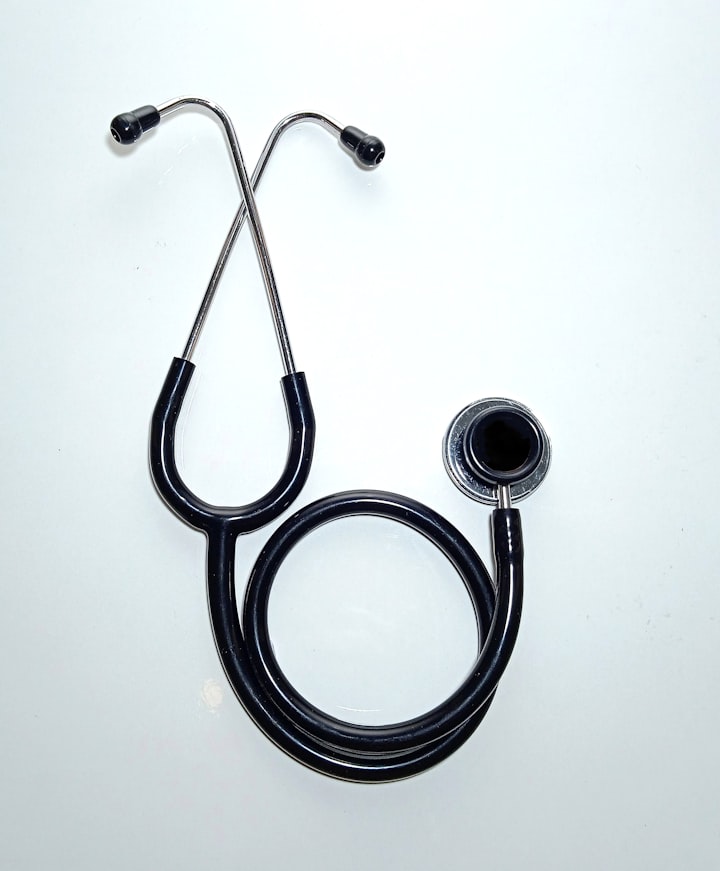5 Easy Ways to Become Your Nurse's Favorite Patient
Show a little kindness
Disclaimer: I used to work in on a medical/surgical unit and in ambulatory surgery. I have since shifted over into health and wellness freelance writing. The information included in this article is based on my personal experience and does not constitute medical advice.
Nursing is a challenging profession and many nurses care for multiple patients at one time. Nurses often work with people who are not at their "best", and they learn to show a lot of grace and kindness in difficult patient interactions.
In my time in nursing, some patients were much easier to interact with and help. In a field with many challenging experiences, I still remember the patients who were kind and helped make my job easier. I found they tended to be the ones who utilized the following guidelines:
1. Follow your nurse's rules, even if you think the rules are dumb.
Sometimes, nurses will ask you to follow rules that seem silly, like "Don't get up by yourself."
What you don't see as a patient is all the hospital policies and regulations that dictate the instructions your nurse gives you. Most rules have sound reasoning behind them or a bad incident that created the rule. It's a good idea to ask questions if there's something you don't understand.
For example, suppose you get admitted to the hospital. When this happens, the medical staff will typically evaluate your fall risk.
Because safety is a major concern, your nurse may ask you to use your call light and have someone in the room with you before you get out bed. Try to humor your nurse, even if you feel confident you won't fall. This avoids potential accidents, and if you demonstrate that you can get up without assistance, your nurse may change your "fall risk status" to let you get up on your own.
In the end, it makes everything easier for everyone and prevents adverse events from happening. For example, if you get up alone and fall, you could get seriously hurt. And even if you don't, it creates a lot more work for the entire medical team, and the nurse will have to file an incident report. Please, keep yourself safe and save your nurse that sort of hassle.
2. Remember your nurse's name and use it.
I never expected my patients to remember my name, but it meant a lot to me when they did. It helped our interactions have a more friendly and respectful vibe. If you forget your nurse's name, it's okay to ask again.
Some hospitals allow you to fill out a survey after you leave the hospital. You can mention your nurse by name and say thank you for the care your nurse gave you.
3. Ask nicely and say "Thank you."
I liked to bless my patients in little ways: a warm blanket, some ice water, or a cup of coffee. I found I was much happier to do these things if the patient asked nicely rather than demanding them. If a patient said "thank you," it made me much more eager to oversee further requests. I still remember the time I brought a patient a warm blanket, and she smiled and called me an angel.
A bit of kindness goes a long way. The patients that demanded items or service in a rude way made things harder. Plus, nurses have to give reports on their patients to the oncoming shift. If you've been a pleasant and grateful patient, you can bet it makes it into their reports. If you've been griping or yelling at staff, that will also be passed along.
4. Try not to direct your frustration at your nurse.
If you're in the hospital, you're probably in a rough spot. You're probably in pain and have a problem that's severe enough for you to be in the hospital. Your nurse knows this, and it's okay to vent frustration or voice concerns. In fact, this can often be a good thing because it adds to data collection about your care and ways to improve your situation.
But unless your nurse is rude or you have other concerns about a specific nurse, try not to direct your frustration at your nurse. Your nurse is part of a healthcare team trying to get you the best care possible. As a sidenote, she's also probably working with a doctor who probably has at least 20 other patients to see and evaluate. There are other things outside of her control too, so please, don't blame your nurse for problems that aren't her fault.
5. Be patient and understanding with your nurse
Likely, you aren't your nurse's only patient. She is probably trying to care for multiple patients with different health problems. She's not your maid. She's a healthcare professional who's trying to keep everyone alive. She will sometimes have to prioritize care and focus on more immediate needs.
If she's doing compressions in the next room over to try to resuscitate someone, please don't complain about not getting the ice water you asked for half an hour ago. Sadly, I have to admit that sometimes nurses forget or even ignore requests that are not related to medical care. But most of the time, nurses are trying their best to care for their patients. What can feel like a long time to you might be a very short time to them. If you work to show patience and understanding, it helps your nurse to have a much better shift and makes your interactions with her much more pleasant.
Remember: Nurses are people too.
When I wrote that you can be a nurse's favorite, it doesn't mean you won't get care if you aren't a "favorite." They're still going to help you even if you degrade them or treat them rudely. But can you make your nurse's job easier and more enjoyable? For sure!
I once had a patient could only utter the coherent phrase of "Go F*** yourself." He was combative and challenging to care for. But did I still care for him, do my best, and act as his advocate? You can bet I did. Nurses didn't get into the job because they expected glory or prestige. If they did, they were delusional.
But nurses are just people doing the best they can. When patients acknowledge this and treat their nurses respectfully, it improves everything for everyone involved. It can be hard to do as a patient, but when you are kind, you can can make a difference in the life of your nurse.

Thanks for reading. If you liked what you read, consider subscribing, leaving a heart, pledging, or giving a tip. Tipping is an awesome addition to my coffee fund.
If you would like to receive regular updates on my work, please email me at [email protected] and ask to be added to my email list.
You can also follow me on Medium.
About the Creator
Jessica Freeborn
Passionate writer that is enthusiastic about writing engaging, compelling content. Excels in breaking down complex concepts into simple terms and connecting with readers through sharing stories and personal experience.
Reader insights
Outstanding
Excellent work. Looking forward to reading more!
Top insights
Compelling and original writing
Creative use of language & vocab
Easy to read and follow
Well-structured & engaging content
Excellent storytelling
Original narrative & well developed characters
Expert insights and opinions
Arguments were carefully researched and presented
Eye opening
Niche topic & fresh perspectives
Heartfelt and relatable
The story invoked strong personal emotions
Masterful proofreading
Zero grammar & spelling mistakes
On-point and relevant
Writing reflected the title & theme








Comments (1)
Keep up the excellent work. I sure wish others would throw me some pledges and tips that way I can return the favor. My author tag is: vocal.media/authors/angelina-f-thomas-efubye0i1y Please observe my work and I will read your work every chance I get